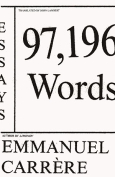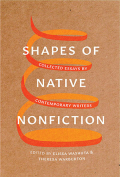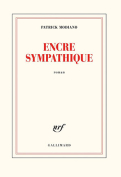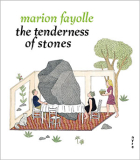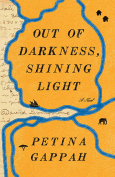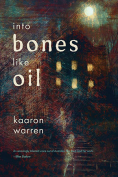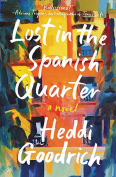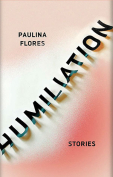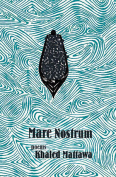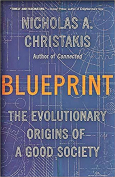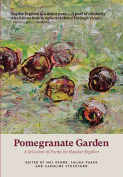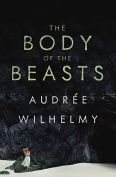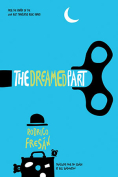The Tenderness of Stones by Marion Fayolle
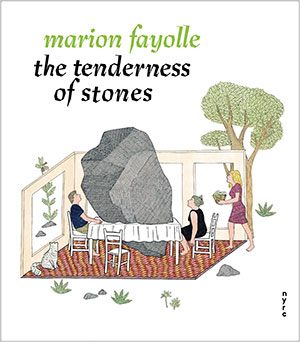 New York. New York Review Books. 2019. 135 pages.
New York. New York Review Books. 2019. 135 pages.
Beginning with the burial of a father’s lung, Marion Fayolle crafts a remarkable allegorical journey of family, illness, and loss in this idiosyncratic and ultimately wrenching graphic memoir in which, piece by piece, the father’s body and life are stripped away.
Fayolle’s prose style is narratively straightforward but surreal and evocative in content with few speech bubbles and many text-free pages. Her use of line, crosshatching, and color underscore every element of the narrative and elegantly depict each character. Frequently she fills, to great effect, a single page with one spectacular drawing repeated in variation, as with the family members occupying a tree in different positions and combinations, or a large repeated image of the father in silhouette with family members interacting with him. These drawings add depth to the narrative and move it along while the lack of text entices the reader’s imagination.
If there is a form of expressionism unique to graphic novels, Fayolle has refined it; it is apparent from the outset as the family struggles with the overwhelming metaphoric weight of a father’s illness while the children labor to carry his oversized lung to its burial. At one point, she creates a metafictional moment as the family draws a speech bubble that they shift about for four pages to illustrate that the father has lost the power to communicate and only they can fill in his captions. The bubbles are, of course, blank. As the father loses more of himself, his nose, his mouth, his mobility, he reverts to infancy, and the family must respond to his every need.
The characters are few, only the nuclear family—the father, mother, sister, and brother—and the people in white who come to care for the father and are eventually dismissed by the family. But central is the first-person narrator, the daughter, and her relationship with her father. Affection mixed with resentment, respect with disdain, and clarity with denial all characterize the phases through which she moves, in the narrative march toward the inevitable end.
Fayolle has brilliantly captured the stages of caring for a dying loved one and the confusion of emotions that accompany the process. Her memoir is a profound work of beauty and understanding as it narrates and depicts the process of illness and mourning. It calls out to be read again and again.
Rita D. Jacobs
New York City

